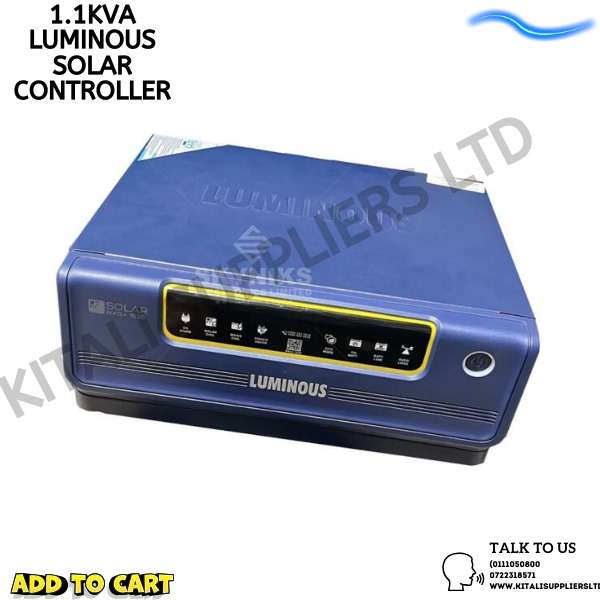Description
Power Capacity:
The controller is designed to handle a power capacity of up to 1.1 kilovolt-amperes (kVA), making it suitable for small-scale solar installations such as residential homes, cabins, or small businesses.MPPT Technology:
Many modern solar controllers utilize Maximum Power Point Tracking (MPPT) technology, which optimizes the efficiency of the solar panels by continuously adjusting the voltage and current to extract the maximum power available under varying sunlight conditions. This helps to maximize energy harvest and improve overall system performance.Battery Charging and Management:
The controller regulates the charging of batteries connected to the solar power system, ensuring they are charged safely and efficiently. It also manages the discharge of batteries to power electrical loads when solar energy is not available, preventing over-discharge and extending battery life.Load Control:
Some solar controllers feature load control functionality, allowing users to connect electrical loads directly to the controller for automatic switching on and off based on battery voltage or time settings. This helps to optimize energy usage and prevent battery damage due to excessive discharge.LCD Display and Monitoring:
Many controllers come equipped with an LCD display that provides real-time information on system status, battery voltage, charging current, and other important parameters. This allows users to monitor the performance of their solar power system and make informed decisions about energy usage and system maintenance.Temperature Compensation:
To ensure optimal battery charging performance, some controllers incorporate temperature compensation functionality, which adjusts charging parameters based on the temperature of the batteries. This helps to prevent overcharging or undercharging of batteries in different environmental conditions.Protection Features:
Solar controllers typically include built-in protection features to safeguard the system against overvoltage, overcurrent, short-circuit, reverse polarity, and other electrical faults. These protections help to ensure the safety and reliability of the solar power system and connected equipment.Remote Monitoring and Control:
Advanced solar controllers may offer remote monitoring and control capabilities, allowing users to access and manage their solar power system remotely via a computer, smartphone, or tablet. This provides greater flexibility and convenience in system operation and maintenance.Compliance and Certification:
Solar controllers may comply with industry standards and certifications such as CE (Conformité Européenne) or UL (Underwriters Laboratories), ensuring quality, safety, and compatibility with local regulations.
0
Average Rating
(0 Review)
0%
0%
0%
0%
0%
To give a review, you need to login first.
LoginProduct Reviews
This product has no reviews.
Let others know what do you think and be the first to write a review.
Messages


